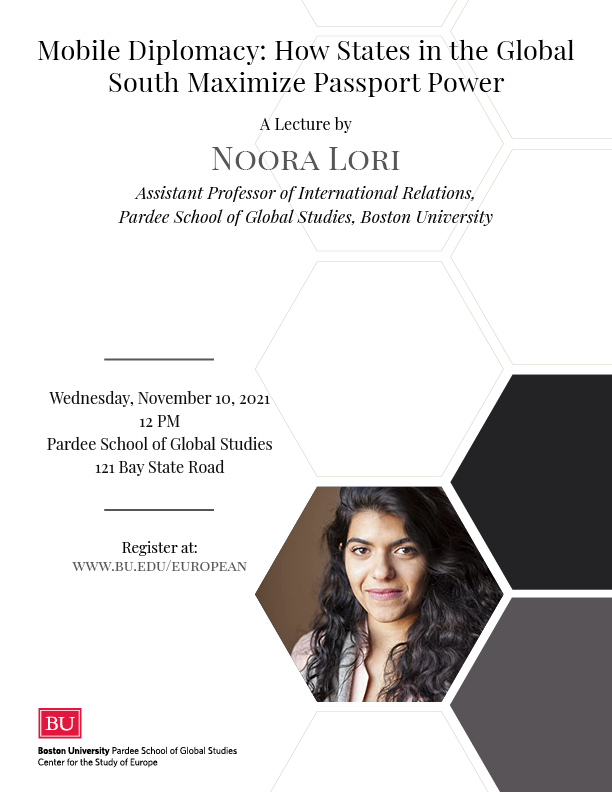Mobility Diplomacy: How States in the Global South Maximize Passport Power (11/10/21)
Join us on Wednesday, November 10, at noon, for our first live and in-person event of the year – a lecture by our Pardee School colleague, Noora Lori. Noora is Assistant Professor of International Relations. Her lecture is titled “Mobility Diplomacy: How States in the Global South Maximize Passport Power.” Please register below.
Access to visa-free travel is highly stratified cross-nationally. Individuals use citizenship-by-investment programs to increase their mobility power, but how do states increase the power of their passports? Prof. Lori introduces the concept of mobility diplomacy to explain how governments in the Global South maximize their citizens’ access to pre-authorized cross-border movement. She finds that neither wealth nor political stability are sufficient conditions for unlocking visa-free travel. To be successful, developing countries must persuade highly developed countries—especially the European Union—that their citizens will not become migrants. The perception of non-immigration is created by projecting a strong capacity for identity management, migration control, and interior security. Lori examines an extreme case of successful mobility diplomacy—the United Arab Emirates—which catapulted to the top of the rankings to become the world’s most powerful passport in 2018. In 2006, UAE citizens could visit only thirty-five countries without a visa, in just over a decade this number increased fivefold. This case-based evidence is supported by a quantitative assessment of alternative explanations, and mini-case studies that confirm the EU’s key role in shaping cross-national variation in access to visa-free travel. Lori’s talk shows how the management of cross-border flows can be used to instigate behavioral changes in target states through allure rather than coercion, and how “non-immigration” is deployed to both contain and expedite cross-border movement.
The University is committed to promoting a safe campus environment. In accordance with current University safety protocols, cloth face coverings or disposable masks must be worn indoors at all times when not eating or drinking. Any participant with symptoms that could be related to COVID-19 should not engage in group activities and seek medical advice.

